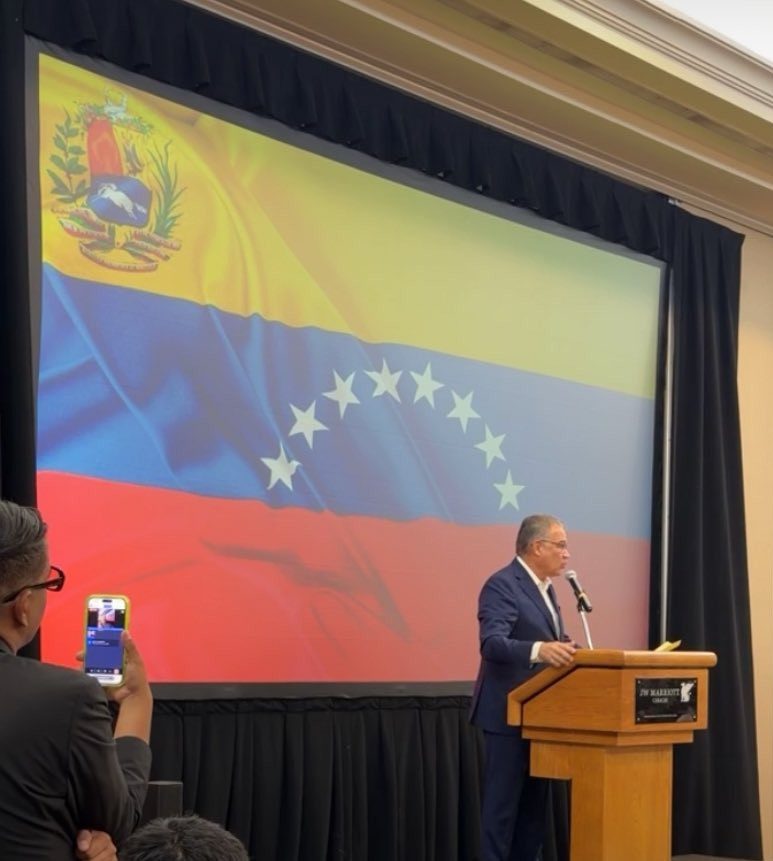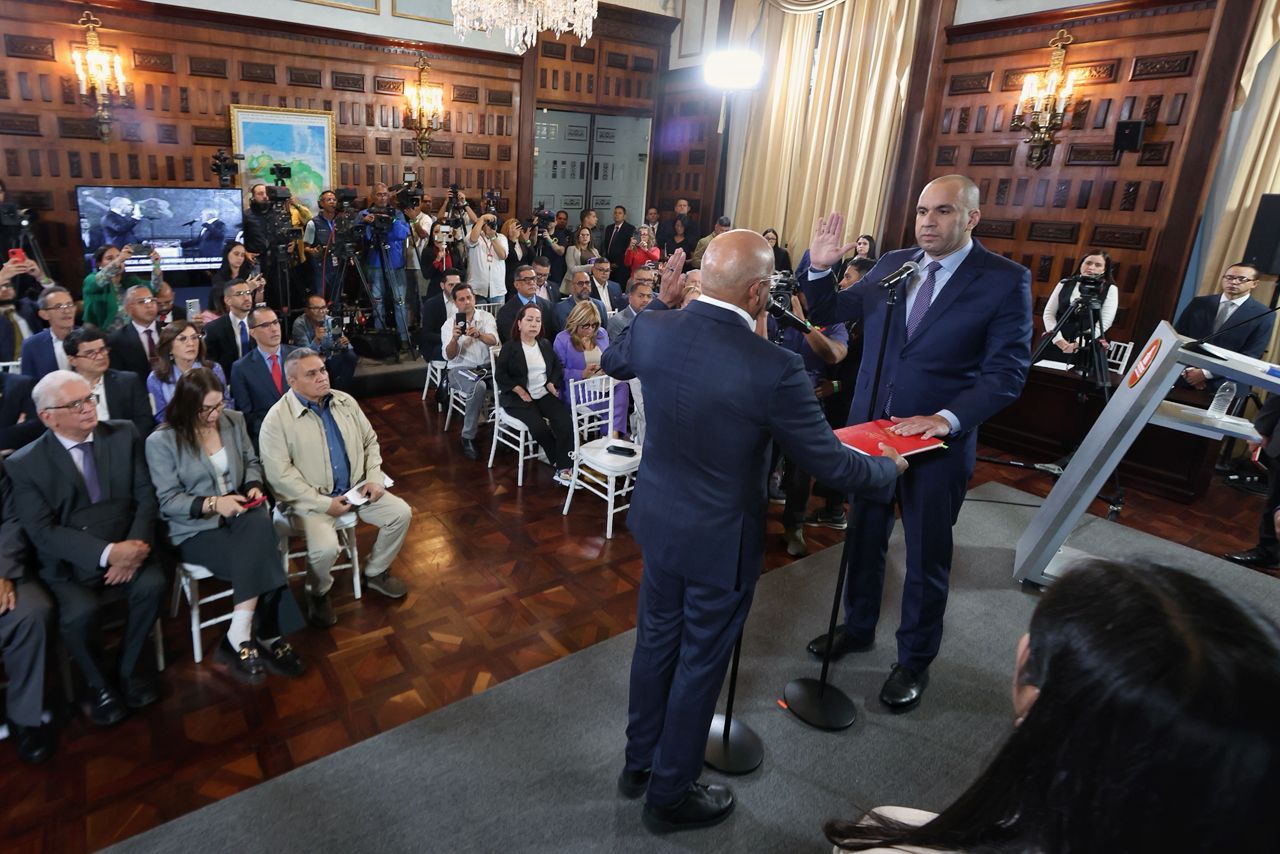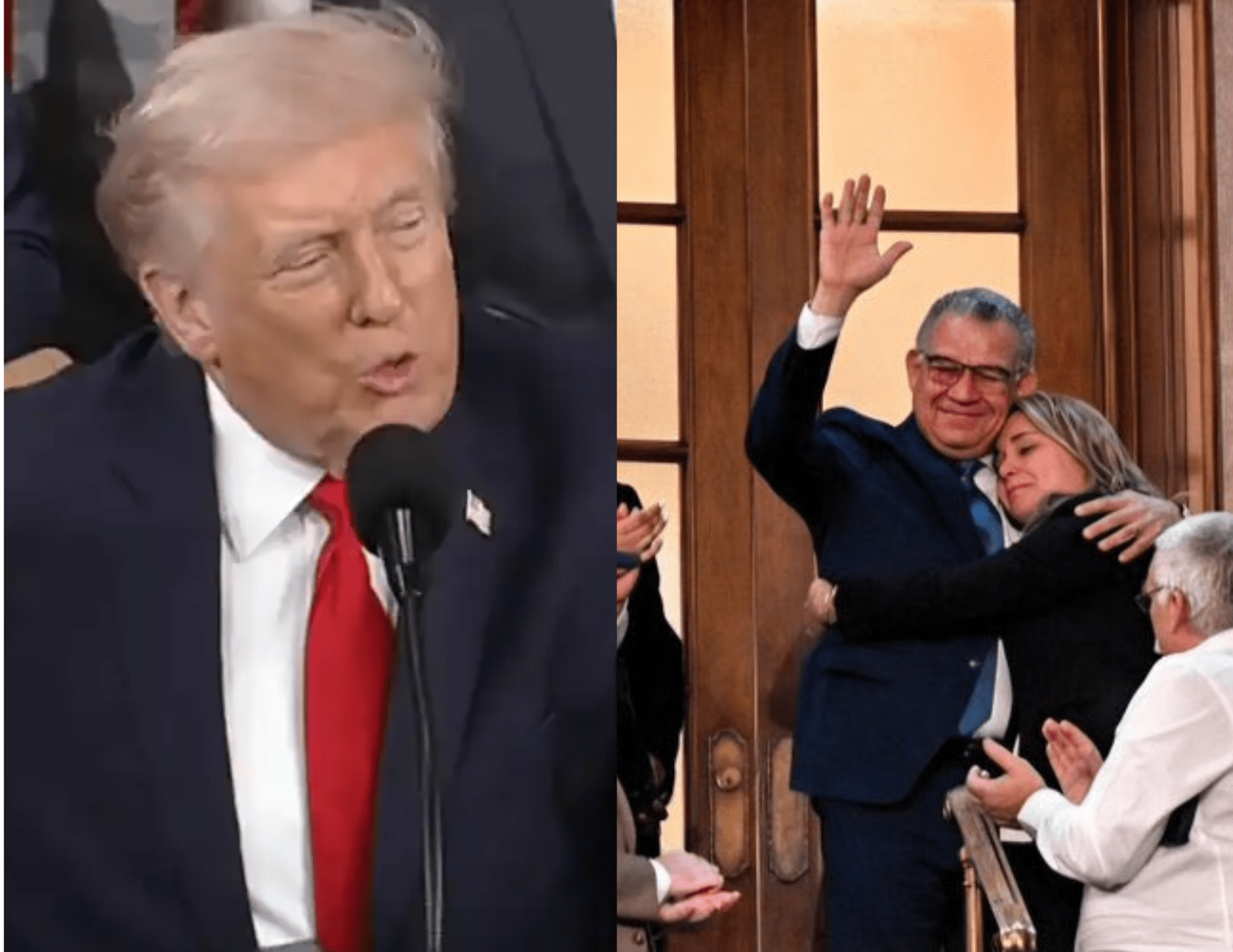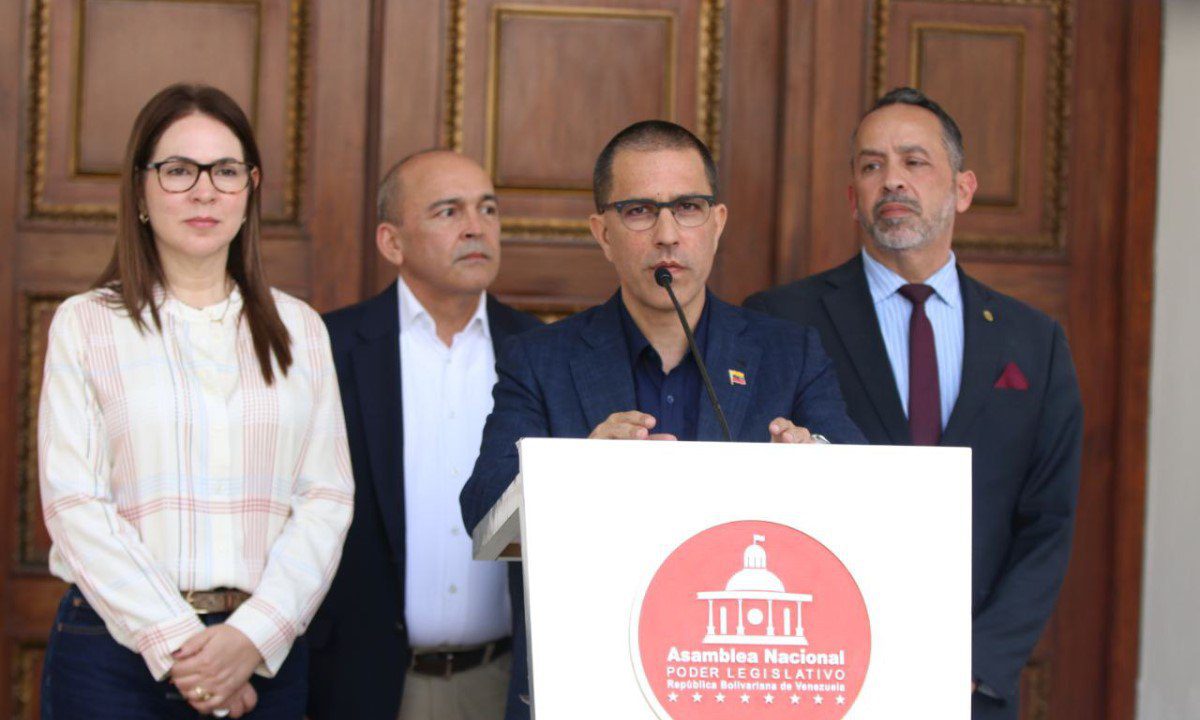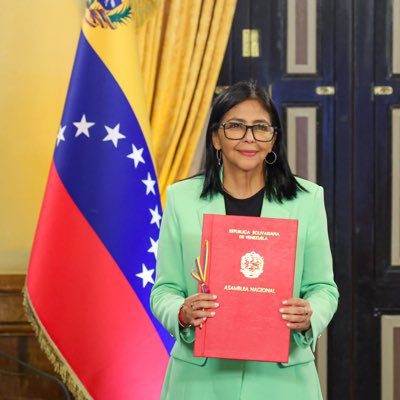Guyana’s President Irfaan Ali and U.S. Secretary of State Marco Rubio during a meeting in Georgetown on Thursday. Photo: Office of the President of Guyana.
Guacamaya, March 27, 2025. U.S. Secretary of State Marco Rubio warned in Georgetown on Thursday that any military action by Venezuela against Guyana or its oil interests “would not end well,” during a visit to strengthen bilateral ties amid the century-old dispute over the Essequibo region.
The trip, marked by the signing of a security cooperation agreement, drew a fierce response from Caracas, which accused Washington of promoting “war” in the region.
Guyana and U.S. armed forces also conducted joint military exercises ahead of the Secretary of State’s visit.
Amid joint patrols by the U.S. Navy and Guyana in disputed waters, Rubio asserted that his country would “unhesitatingly” support Guyana’s sovereignty over the Essequibo, a 160,000 km² region where ExxonMobil discovered massive oil reserves in 2023. “If they attack Guyana or ExxonMobil, it will be a very bad day for them,” he stated, without directly naming Venezuela.
The signed memorandum of understanding aims to formalize defense, intelligence, and technology assistance, though the State Department avoided detailing whether it includes military deployment.
It is worth noting that U.S. Secretaries of State have been visiting Guyana since 2020. The first was Secretary Pompeo during Trump’s first term, followed by Blinken under the Biden administration, and now Rubio. Support for Guyana is a bipartisan policy.
Venezuela Responds
Venezuelan Vice President Delcy Rodríguez labeled Guyanese President Irfaan Ali the “Zelensky of the Caribbean” for aligning with Washington and accused Rubio—whom she called “tiny”—of threatening regional peace. “Venezuela will never surrender its rights or be intimidated,” she declared, demanding Guyana halt the “illegal exploitation” of an undelimited maritime zone.
Caracas also accused the U.S. of seeking to “establish itself as an occupier” in Guyana to attack Venezuela, referencing the USS Normandy cruiser patrolling alongside the Guyanese vessel GDF Shahoud near the contested area.
Venezuelan Defense Minister Vladimir Padrino López insisted that the Bolivarian National Armed Forces (FANB) would “defend every inch of Guayana Esequiba with constitutional firmness.”
The Essequibo: A New Hot Border?
Tensions escalated in recent days when Guyana reported the incursion of a Venezuelan military vessel into waters it claims—an allegation denied by Caracas. Since then, Venezuela announced the creation of a federal state in the Essequibo and plans to elect local authorities in May’s elections, a move Guyana called “treason,” vowing to jail anyone who participates.
Meanwhile, oil remains central: ExxonMobil leads extraction in Guyanese waters, while Rosneft—which left Venezuela in 2020, transferring its assets to Russian state control—previously had interests in Venezuela’s Deltana Platform near the disputed zone.
International Double Standard
Guyana has faced limited criticism for its military activities with the U.S., unlike Venezuela, which was widely condemned for its recent deployments. Part of the international community considers the Paris Arbitral Award valid, though Caracas has denounced it as fraudulent across different administrations.
With dialogue under the Argyle Mechanism stalled, the region watches whether the struggle over the Essequibo will lead to open conflict or a new race for strategic resources.



